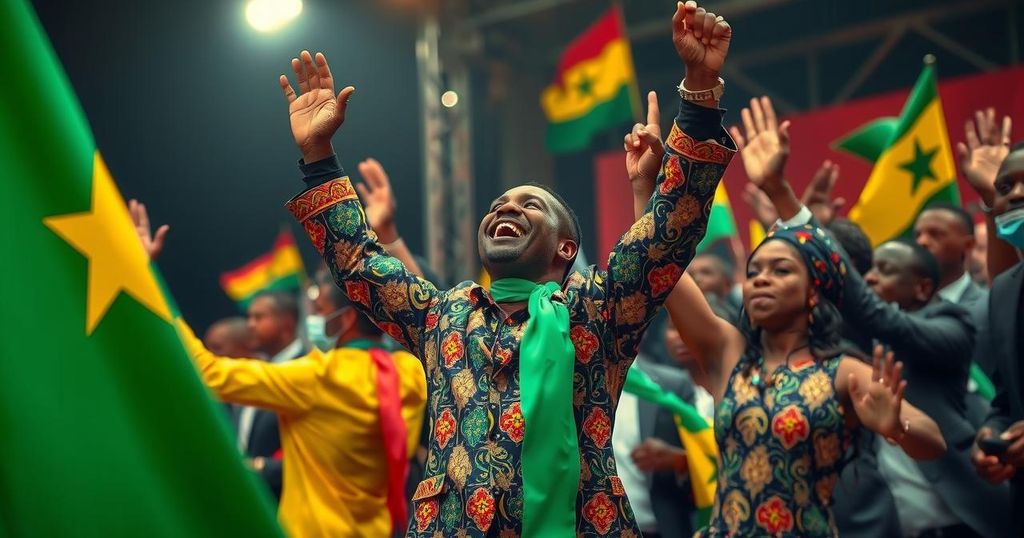Senegal’s Ruling Party Secures Victory in Legislative Elections, Paving Path for Reforms
Senegal’s ruling party PASTEF claimed a significant victory in the legislative elections, paving the way for President Bassirou Diomaye Faye to pursue an ambitious reform agenda. While opposition parties conceded, concerns regarding electoral fraud were raised by former President Macky Sall. The government faces challenges such as high unemployment and financial deficits but has started implementing reduced prices on essential goods.
Senegal’s ruling political party, PASTEF, has declared a decisive victory in the legislative elections held on Sunday, with almost all votes counted. This victory for President Bassirou Diomaye Faye follows his own successful presidential election mere months prior, empowering him to pursue an ambitious reform agenda. Provisional results indicated that PASTEF won the majority at the initial polling stations, as reported by local media. Government spokesman Amadou Moustapha Ndieck Sarre expressed gratitude to the Senegalese populace for their support, stating, “I pay homage to the Senegalese people for the large victory that it has given to PASTEF.” The two main opposition parties have conceded, with Barthelemy Dias, head of the SAMM Sa Kaddu coalition, acknowledging PASTEF’s success by congratulating them as the election winners. Despite the opposition’s concession, former President Macky Sall accused PASTEF of orchestrating widespread fraud without providing specific evidence to support his claims. President Faye had faced challenges enacting his reform agenda due to the opposition’s control of parliament, which had stymied his efforts to tackle issues such as corruption and promote more favorable conditions for the exploitation of Senegal’s natural resources. Previous leaders, including President Macky Sall and former Prime Minister Amadou Ba, were entrenched in their roles in opposition coalitions while protests erupted due to legal challenges facing Faye and his ally, Ousmane Sonko. Although the campaign experienced some tensions, many incidents of violence were largely avoided. Unemployment rates in Senegal remain high, with over 20% of the population jobless, while the government reported a larger budget deficit than previously anticipated under Sall’s administration. The International Monetary Fund (IMF) paused its aid program until an audit of public finances could be completed, as credit agency Moody’s downgraded Senegal’s credit rating. In response to public concerns, the current government has reduced the prices of essential goods but faces the risk of exacerbating fiscal pressures.
The recent legislative elections in Senegal form a significant phase in the country’s political landscape, following the election of Bassirou Diomaye Faye as president in March. The PASTEF party’s prior victory provided a foundation for reform initiatives that are now considered critical given the socio-economic challenges facing Senegal, including high unemployment rates and public dissatisfaction with government accountability. The context of heavy opposition, coupled with claims of electoral fraud, also reflects the ongoing tensions in Senegal’s political environment.
In summary, the legislative success of Senegal’s ruling party PASTEF marks a pivotal moment for President Faye as he seeks to implement a comprehensive reform agenda. The party must navigate claims of fraud from the opposition while addressing pressing social and economic issues. Despite some contentions, the electoral results indicate a clear mandate for PASTEF to pursue its objectives in governance and policy change.
Original Source: www.dw.com




Post Comment